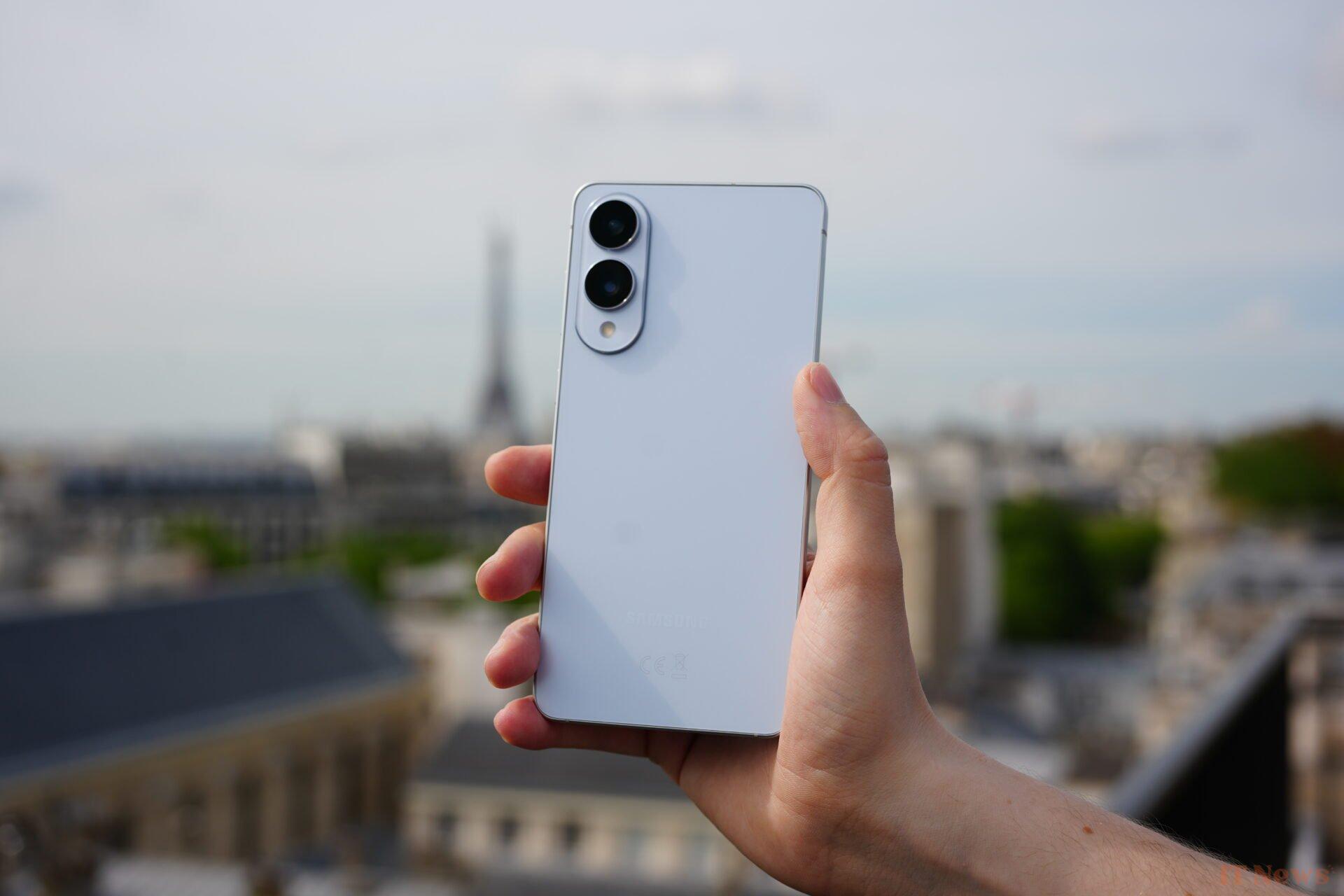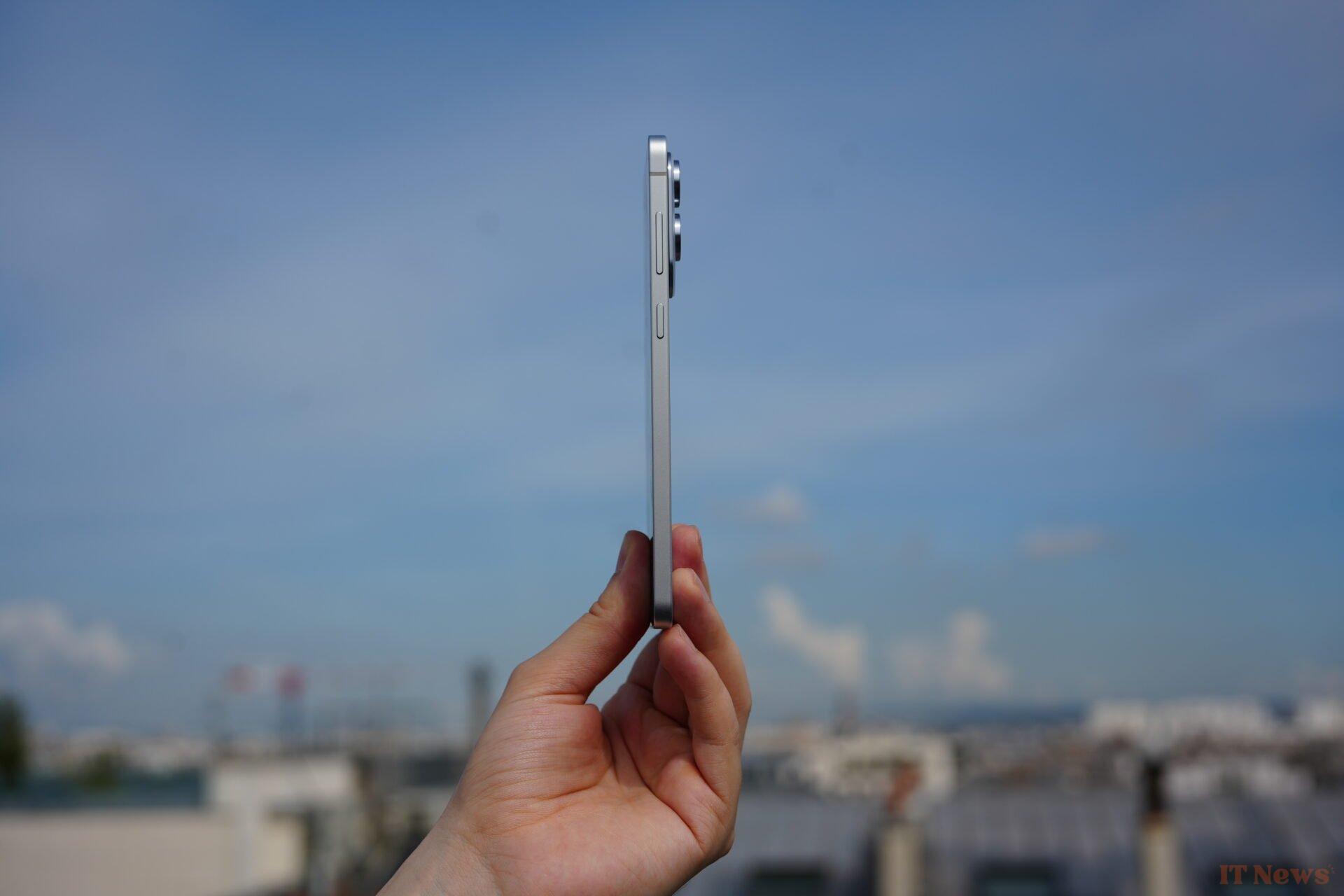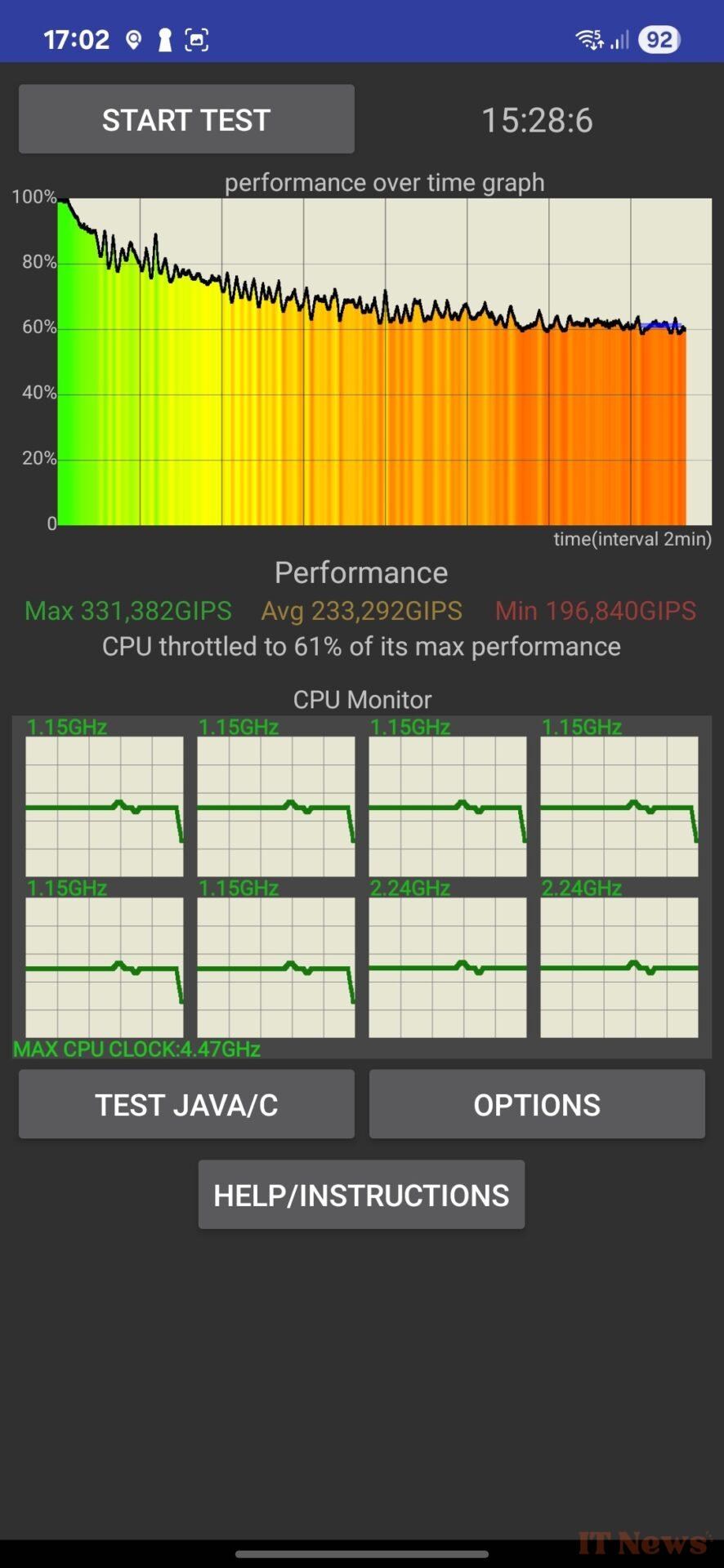It goes without saying that the Galaxy S25 Edge, the first smartphone to be released under 6 mm, is provoking much debate. Among these, the question of battery life and heat management for such a device often comes up. Before the full review is published, we offer you an initial assessment of these two topics, based on data from 01lab.
Battery life: decent, neither horrible nor blazing
First stop on the program, one of the most important purchasing criteria for a smartphone: battery life. On this subject, Samsung told us when announcing the S25 Edge that with its small 3900 mAh battery, it should be at roughly the same level as a Galaxy S25, the compact in the range which has a 4000 mAh battery.
According to our measurements, this is strictly true, give or take a few minutes. The Galaxy S25 Edge lasted 17 hours and 21 minutes on our mixed battery life test, which uses the smartphone automatically and continuously for many uses. This is very close to the Galaxy S25, which tested at 17 hours and 27 minutes. On the other hand, unsurprisingly, the Edge is far behind the slightly larger model, the Galaxy S25 Plus with its 19 hours, or even a OnePlus 13 with 6000 mAh battery which goes up to 21 hours of use.
In practice, such a measure should result in using the smartphone without too much trouble for a day, even with relatively heavy usage. On the other hand, those who display more than 6 hours of screen time per day will probably have to stop by the charging box before going to bed.
Mediocre charge, but not catastrophic
A word about the charge, which as a reminder goes up to a power of 25 W, which is also equivalent to the Galaxy S25. Unsurprisingly, this gives a fairly mediocre result on the total charge, since it takes 1 hour and 27 minutes to fill up. In 10 minutes starting from 0, you will reach 18% battery life, which is far from the 27% of a Galaxy S25 Plus with a 45W charge. Let's not talk about the 41% of the OnePlus 13 with its 100W charger.
Performance: despite lower than expected performance, it heats up
On paper, due to its thinness, the Samsung Galaxy S25 Edge will necessarily have more difficulty evacuating the heat produced by its SoC, the Snapdragon 8 Elite, one of the most efficient chips on the market.
We put it through our traditional benchmarks and filmed the back of the phone with a thermal camera to better understand the heating during the 3D Mark stress test.
As you can see, the phone reaches 45.7°C. While we've seen higher values in our tests, such as 52.1°C for the Zenfone 10, this value is undoubtedly at the top of the range. It should be noted, however, that the maximum value remains below that of an iPhone 15 Pro (47.2°C), for example. The thermal amplitude, which refers to the difference between the highest and lowest temperatures, is 23.7°C. Again, this is nothing to be ashamed of. Staying with Samsung, the Galaxy S24 Plus reached 24.7°C, for example. However, all the other S25s display a value below 22°C. We can therefore say that the S25 Edge is the worst in the range on this subject.
We can also observe significant throttling, that is to say a drop in performance imposed by the system in order to protect the components, due to excessive heating. The S25 Edge is unable to maintain its maximum performance for very long, and then gradually drops to 60% after about fifteen minutes.
Over a shorter time, namely the duration of a benchmark like Geekbench, however, the CPU power does not seem to be any lower, compared to an S25 Plus for example. We can see that the single-core measurement is not that far from its counterpart. It also aligns with a OnePlus 13.
Ultimately, the Galaxy S25 Edge succeeds rather well in its gamble. While there are some concessions, they remain relatively controlled, especially when compared to traditional smartphones like the Galaxy S25 Plus. Battery life is similar, equivalent to a classic compact smartphone. It therefore performs well, aligning itself with industry standards from the outset. On the other hand, throttling is a real problem for this form factor. This smartphone is therefore not recommended for hardcore smartphone gamers.





0 Comments